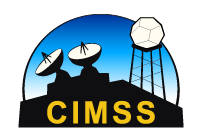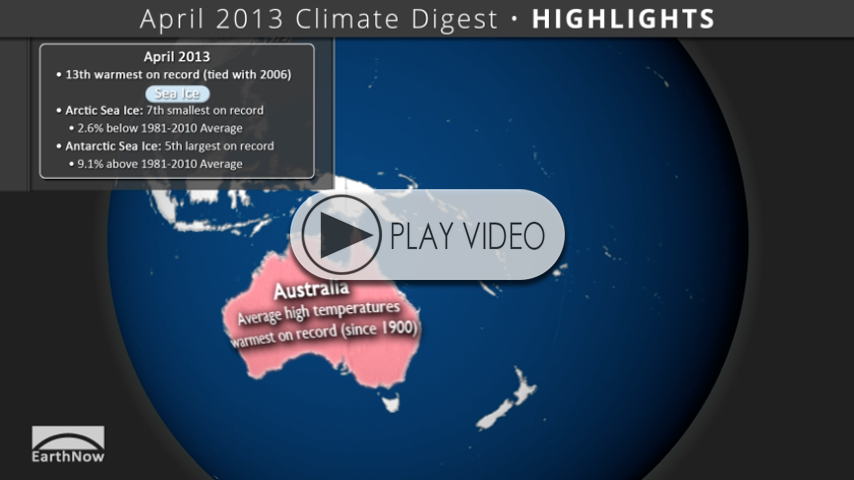
April 2013 Climate Digest • iPad Video
SOS Playlists
 SOS Playlist
SOS Playlist
 SOS AutoRun/Audio Playlist
SOS AutoRun/Audio Playlist
Overview
Each month, we will provide information regarding the previous month’s climate. Overall, preliminary data analysis suggests that April 2013 was the 13th warmest on record (since 1880). Major stories include a chilly United States, warmer than normal Australia, and the continued absence of El Niño or La Niña.
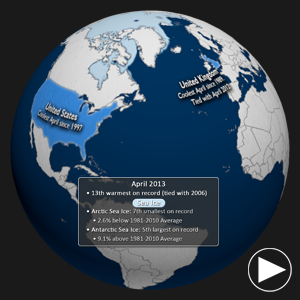
April 2013 Highlights • iPad Video
Highlights Dataset
Dataset: 20130521 EarthNow: April 2013 Highlights
Dataset: 20130521 EarthNow: AUDIO April 2013 Highlights
 Full Map Image
Full Map Image
- This dataset shows some of the major April weather and climate highlights from the National Climatic Data Center’s (NCDC) monthly global climate analysis, and serves as an overview of what can be discussed in the datasets that follow. Highlights are noted below with more information.
- United States: Much of the U.S. was colder than normal, experiencing the coolest April since 1997.
- Australia: Western Australia experienced record-breaking average high temperatures.
- South Korea: Coolest April since records began in 1973.
- United Kingdom: The U.K. was also colder than normal, experiencing its coldest April since 1989, tied with April 2012.
- Arctic Sea Ice Extent: Seventh smallest on record, at 2.6% below the 1981-2010 average.
- Antarctic Sea Ice Extent: Fifth largest on record, at 9.1% above the 1981-2010 average.
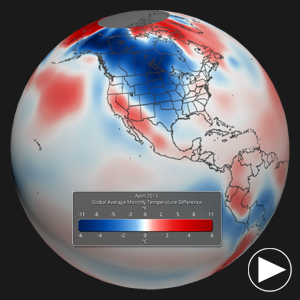
Global Temperature Anomalies • iPad Video
Global Temperature Anomalies Dataset
Dataset: 20130521 EarthNow: April 2013 Temperature Anomaly
Dataset: 20130521 EarthNow: AUDIO April 2013 Temperature Anomaly
 Full Map Image
Full Map Image
- Using the real-time Monthly Temperature Anomalies dataset is a great way to convey where some of the warmer and cooler than average areas were in April, including those mentioned above in the highlights.
- The combined global land and ocean average surface temperature for April was the 13th warmest on record (since 1880).
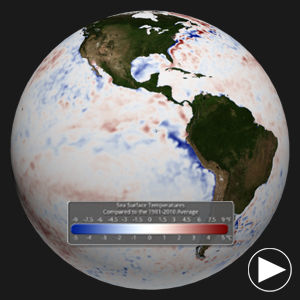
SST Anomalies • iPad Video
Sea Surface Temperature Anomalies Dataset
Dataset: 20130521 EarthNow: April 2013 SST Anomaly
Dataset: 20130521 EarthNow: AUDIO April 2013 SST Anomaly
 Full Map Image
Full Map Image
- The real-time sea surface temperature anomaly dataset is a great way to visualize the El Niño – Southern Oscillation (ENSO) cycle in the eastern tropical Pacific ocean. For April 2013, these waters right around average, indicating an ENSO Neutral period.
- Remember that the blues indicate cooler than average temperatures and reds indicate warmer than average temperatures (white: average).
- The Climate Prediction Center expects the neutral conditions to prevail through at least the Northern Hemisphere Summer.
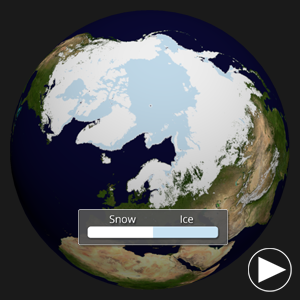
Snow and Ice Cover • iPad Video
Snow and Ice Cover Dataset
Dataset: 20130521 EarthNow: April 2013 Snow and Ice Cover
Dataset: 20130521 EarthNow: AUDIO April 2013 Snow and Ice Cover
 Full Map Image
Full Map Image
- Aside from helping to illustrate seasonal changes, the real-time Snow and Ice Cover dataset is a great way to convey sea ice change through time, including discussing how the current sea ice extent compares to other noteworthy years.
- The Arctic sea ice extent in April was the seventh smallest on record. The extent was 2.6% below the 1981-2010 average.
- In Antarctica, the sea ice extent was the fifth largest on record, at 9.1% above the 1981-2010 average.
Where do I find the datasets?
-
First, check your SOS system to make sure it’s not already in the EarthNow category.
-
If not, you can download the datasets and playlist files from this FTP Site.
-
Then download and use playlist files at the top of the page (or create your own) and make sure they are in /home/sos/sosrc or /home/sosdemo/sosrc.
-
More detailed information here
Helpful Resources for More Information
-
http://www.ncdc.noaa.gov/oa/ncdc.html National Climatic Data Center (NCDC)
-
http://www.ncdc.noaa.gov/teleconnections/enso/enso-tech.php About ENSO (El Niño/La Niña)
-
http://www.ncdc.noaa.gov/sotc/global/ NCDC’s Global Climate Report





